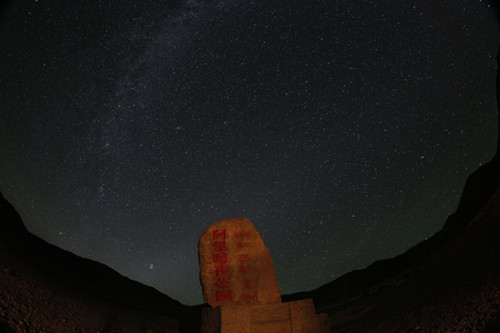 Mar. 28, 2018 -- The starry night sky can be seen at the China Conservation Area for Dark and Starry Sky in Ngari in the Tibet autonomous region. (Photo/Xinhua) Mar. 28, 2018 -- Two natural reserves in the Tibet autonomous region have been recognized for their conservation of dark skies. The China Conservation Area for Dark and Starry Sky in Ngari and Nagchu were accredited by the International Union for Conservation of Nature this month for their efforts in combating light pollution and protecting dark skies, according to their operators. It is the first time such reserves in China have been recognized by an international organization, according to the China Biodiversity Conservation and Green Development Foundation. The International Dark-Sky Association, a U.S.-based group devoted to protecting the nighttime environment and dark skies globally, has certified more than 70 such places in the world, but until recently China had no certified conservation areas. Ren Xiaodong, head of the starry sky committee of the China Biodiversity Conservation and Green Development Foundation, said starry skies were becoming increasingly rare because of increasing light pollution. Light pollution has a major effect on nocturnal animals. It also affects humans' circadian rhythms, which are important in determining our sleeping and eating patterns, Ren said. |
- Home
- News Tibet |Exclusive |China |World |Related News |Latest
- Documents White Papers |Others
- Photo Politics |Economy & Society |Culture & Religion |Human & Nature |Beautiful Tibet |Other Tibetan-Inhabited Area |Exchanges |Related
- Video News |Documentary |Micro-Video |Entertainment
- Art
- Tourism
- In Focus
- About Tibet






